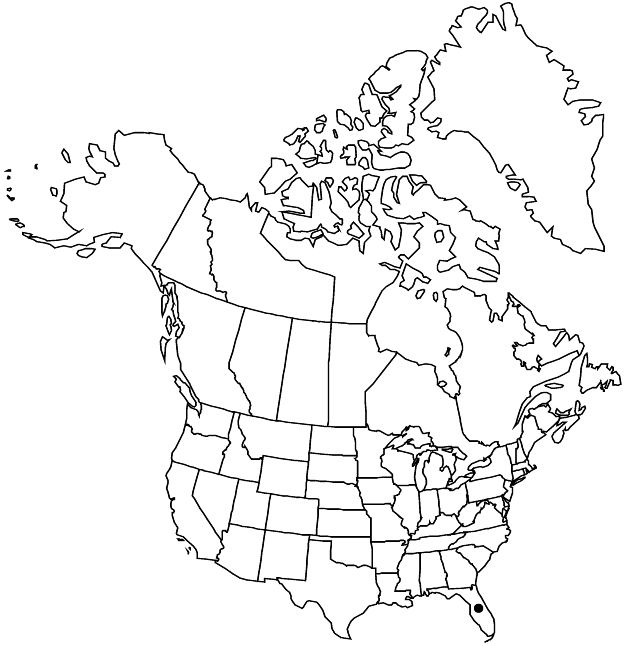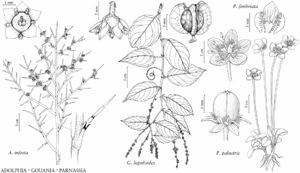Gouania lupuloides
Symb. Antill. 4: 378. 1910.
Woody vines scrambling and climbing to 7–12 m. Leaves: petiole hairy; blade elliptic to ovate or lanceolate, 4–10 cm, base rounded to subcordate, margins serrate to crenate-serrulate, apex acute-acuminate, abaxial surface glabrous [densely hairy] except veins sparsely puberulent-pubescent, adaxial surface glabrous [densely hairy, glabrescent]. Inflorescences: racemelike portions 5–20 cm. Pedicels (0.5–) 1–3 mm, densely hairy. Flowers: hypanthium densely [white to] brown-hairy externally, glabrous internally except at orifice; nectary lobes chartaceous. Schizocarps 6–13 mm, glabrous; samaras butterfly-shaped, wings reniform/1/2-elliptic, 7–14 × 2–6 mm.
Phenology: Flowering Aug–Mar.
Habitat: Mangroves, coastal hammocks.
Elevation: 0–10 m.
Distribution

Fla., Mexico, West Indies, Central America
Discussion
Some treatments of Gouania treated G. polygama (Jacquin) Urban as a synonym of G. lupuloides, but A. Pool (2014) considered them to be distinct species and identified all Gouania in the flora area as G. lupuloides. In the flora area, G. lupuloides is known from Brevard, Indian River, Manatee, Martin, Miami-Dade, and Monroe counties. Gouania polygama occurs in Mexico, the West Indies, Central America, and South America.
Selected References
None.
